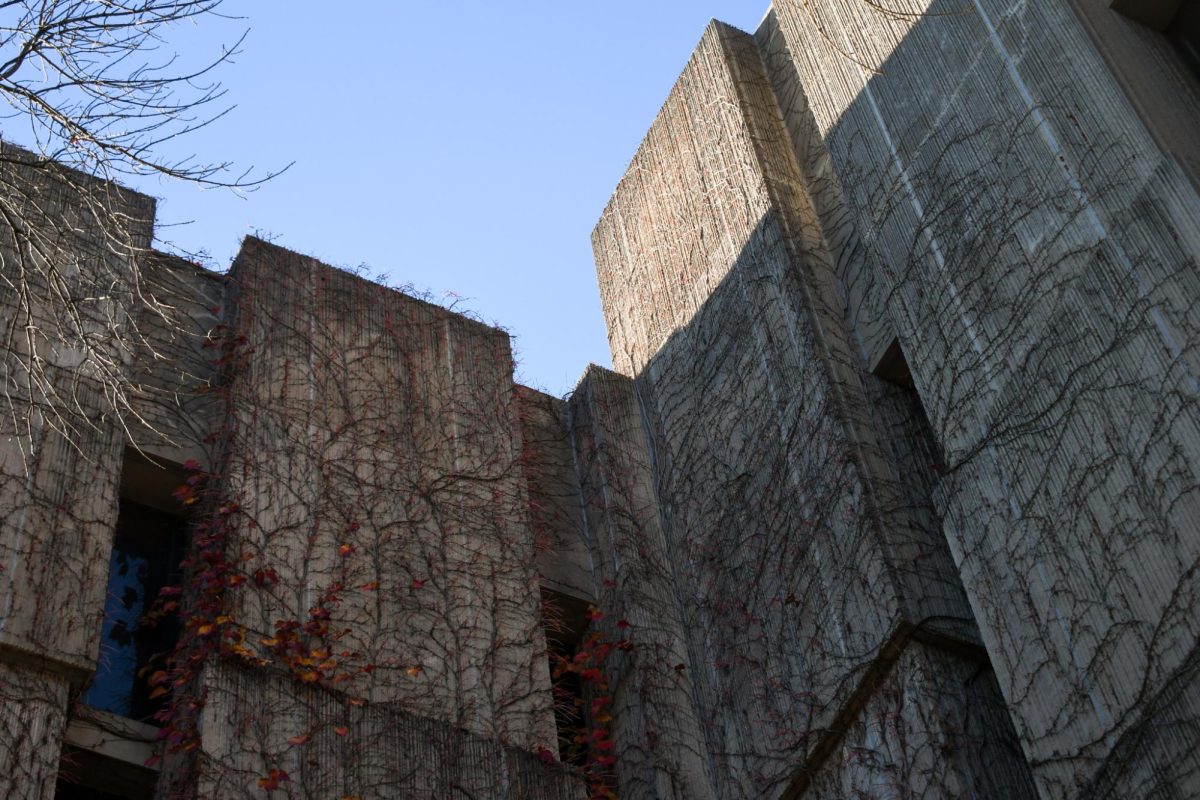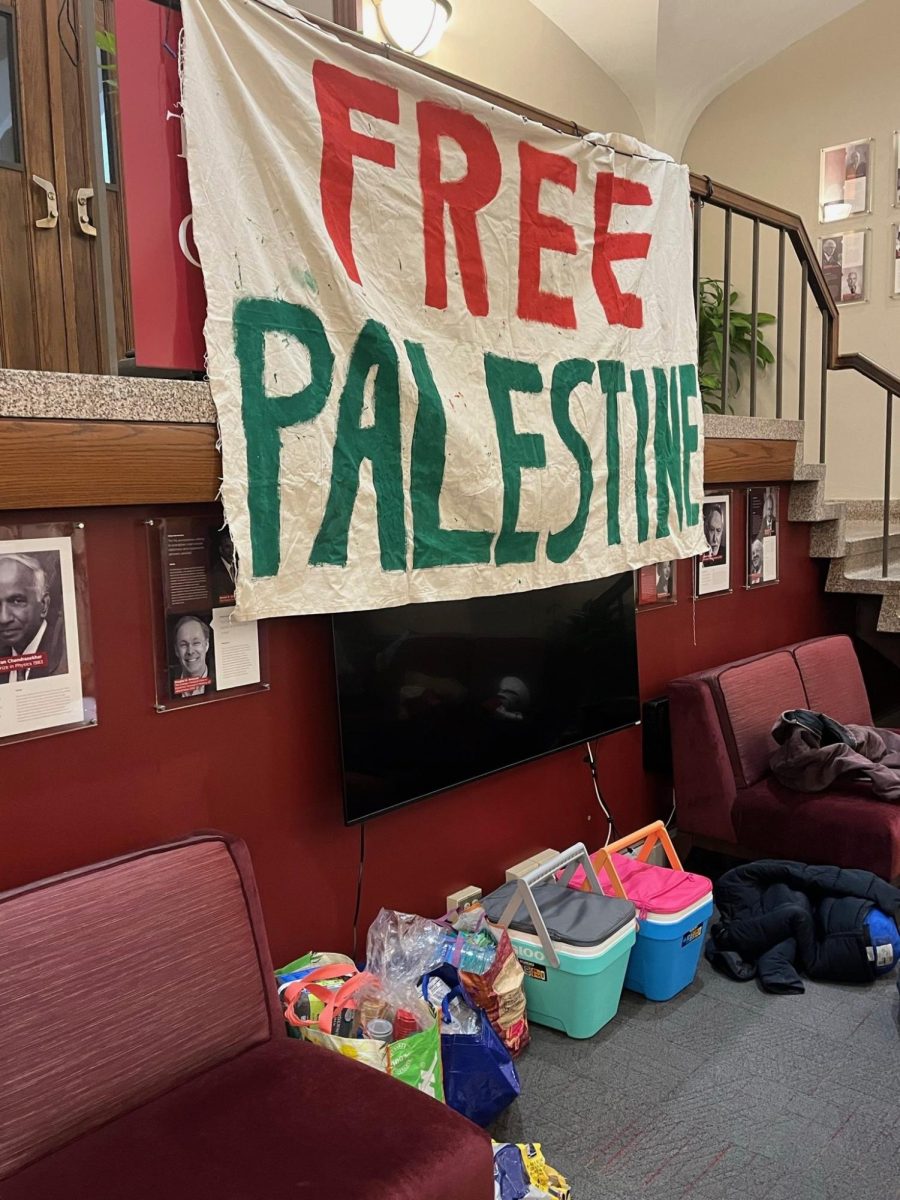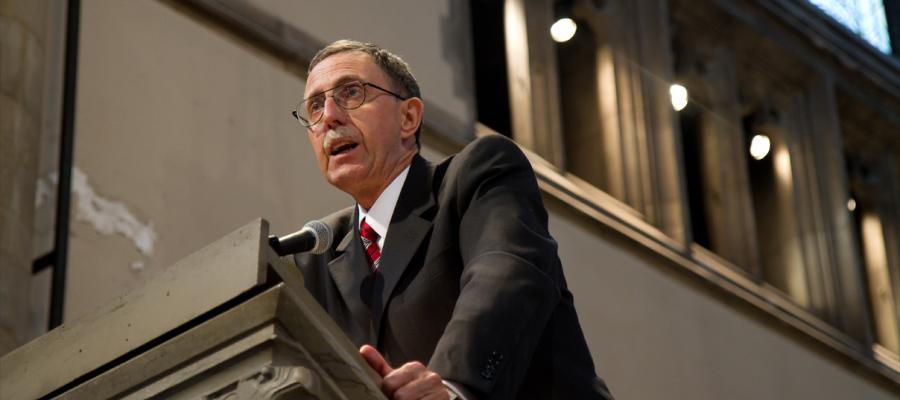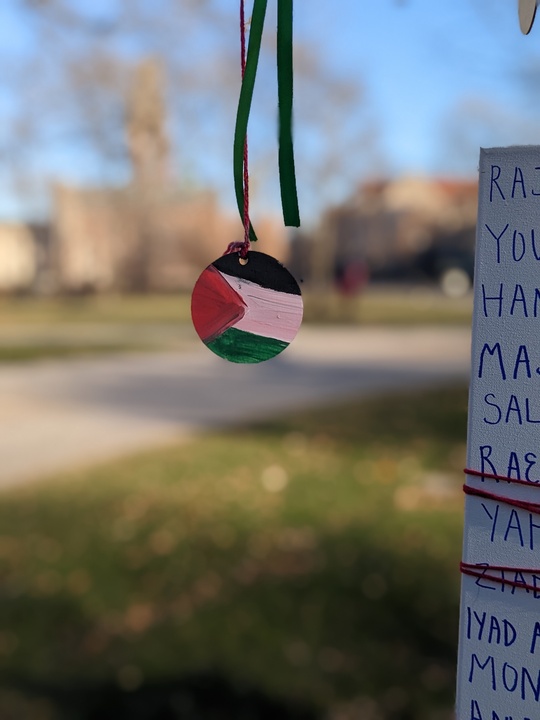On Monday evening, the University of Illinois–Urbana Champaign Chancellor, Phyllis Wise, spoke as a part of the Biological Sciences Division and the Office of Diversity & Inclusion’s Diversity and Inclusion Speaker Series. We are delighted that the University has a series focused on the vital issues surrounding diversity (or the lack thereof) on our campus. However, as became quite clear in the event itself, Wise was a poor choice for this event.
Wise’s record on diversity leaves much to be desired. Under her leadership, African American student enrollment in the college has crashed from 561 students in 2006 to the 300s last year. UIUC’s Department of African American Studies has expressed deep concern about this trend, stating that, “while much of the decline is structural,” Wise, “has not only failed to stem the decline, it has gotten precipitously worse during her tenure.” In addition, UIUC has also threatened economic diversity on campus, spending millions of dollars retaining the services of Clark Baird Smith, a union-busting law firm.
These facts already raise questions about why the University of Chicago invited Wise to lecture us about diversity. But her decision this past summer to “de-hire” professor Steven Salaita makes her selection particularly ill advised. Salaita, who spoke on campus in October, had been offered a position in the American Indian Studies department. At the time, associate Chancellor Reginald Alston called his hiring a “rare opportunity to add an esoteric perspective on indigeneity,” and praised “the obvious intellectual value that his scholarship and background would bring to our campus.” UIUC’s Office for Diversity, Equity, and Access also signed off on the job offer, endorsing his ability to add to diversity on campus.
But Wise felt otherwise. Citing the alleged “incivility” of his Twitter activity, Wise unilaterally withdrew the job offer. Let’s not mince words on this point: Wise’s invocation of “civility” is a codeword for censoring views or individuals she doesn’t agree with. In the past, “civility” standards were frequently used to discriminate against Jews, women, African Americans, LGBTQ professors, and other minorities in the American academy. James Montgomery–UIUC’s only African—American Trustee, and notably the only member of the board to vote in favor of Salaita’s hiring—noted that his own protests against racially segregated housing in the 1950s were likewise once decried as “uncivil.” This is the legacy that Wise represents, and the one the University has chosen to highlight for its Diversity and Inclusion lecture.
In response to Wise’s track record of censoring dissent and ignoring structural racism, 16 different departments at UIUC—including the departments of American Indian Studies, Latino and Latina Studies, Asian American Studies, East Asian Languages and Cultures, Gender and Women’s Studies, and African American Studies—voted no confidence in the Chancellor. Diversity, it should be noted, lies at the heart of most of these departments’ missions. Over 6,000 academics have likewise signed onto a boycott of UIUC agreeing not to give guest lectures or provide public speeches at UIUC. Many specifically cite Wise’s failure to uphold the principles of diversity and academic freedom that every university professes as their reason for signing. Perhaps Wise, who was brought in to lecture on “inclusion,” should spend more time listening to what the real experts on the topic have to say about her tenure at UIUC.
About a dozen students from the University of Chicago—undergraduates and graduate students ranging from the humanities, social sciences, and hard sciences—attended the event with the intention of participating in a conversation about these important issues. But that conversation was cut short. In the brief time allotted for the question-and-answer session of the event, Wise contradicted herself repeatedly, claiming that “we do not judge a faculty member or potential faculty member solely on his tweets,” while at the same time maintaining that Salaita was fired because Wise was “disquieted by the way he was using social media.” We were eager to follow up with Chancellor Wise about this topic afterwards. However, in conduct unbecoming of an invited speaker, Wise refused to stay for her own reception. Worse yet, as she was being ushered out, one administrator mocked the only woman wearing a hijab in the room, just as the student stepped forward to ask Wise a question.
This is a shame because the issues we raised about Wise’s record were clearly of great interest to those in attendance. Several administrators from both the Biological Sciences Division and the Office of Diversity and Inclusion approached us after the event to ask for more information about the firing of Salaita and about UIUC’s poor record on issues of racial and economic inequality. We commend them for being willing to listen, engage, and learn. It is disappointing that Wise, by contrast, chose to deny attendees the opportunity to hear her answer to these important questions.
Wise should never have been invited to speak on our campus about diversity. Even before this summer, UIUC’s record on racial and economic diversity was mixed at best. But her actions in the firing of Steven Salaita have made her the poster-child for those who would place political concerns over increasing diversity and academic pursuits. Her refusal to discuss these matters in any detail only confirms how misguided the decision to invite her was in the first place. We hope that the University will invite more appropriate speakers in the future, and strive to uphold those principles of inclusion that are at odds with everything that Wise has undertaken at UIUC.
—Students for Justice in Palestine







